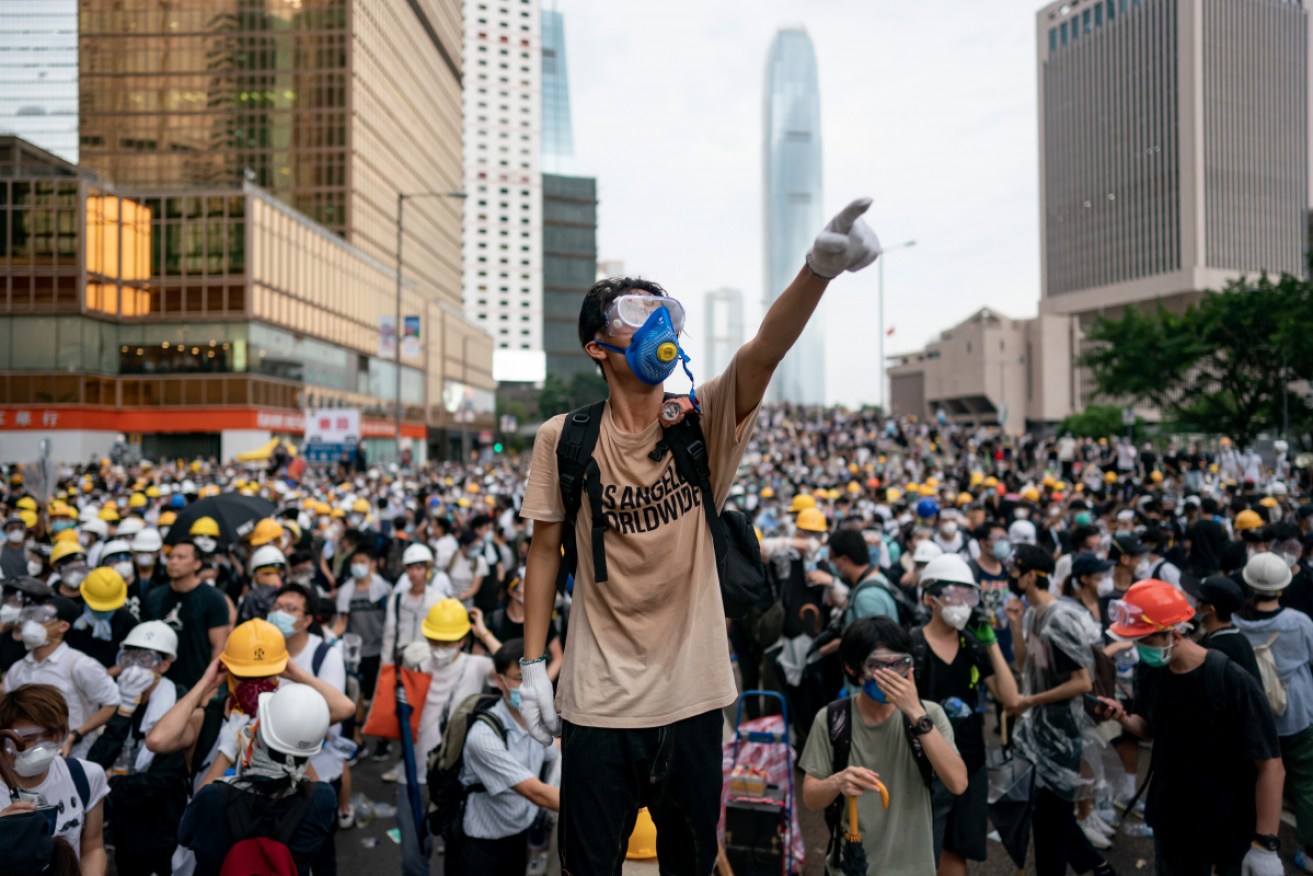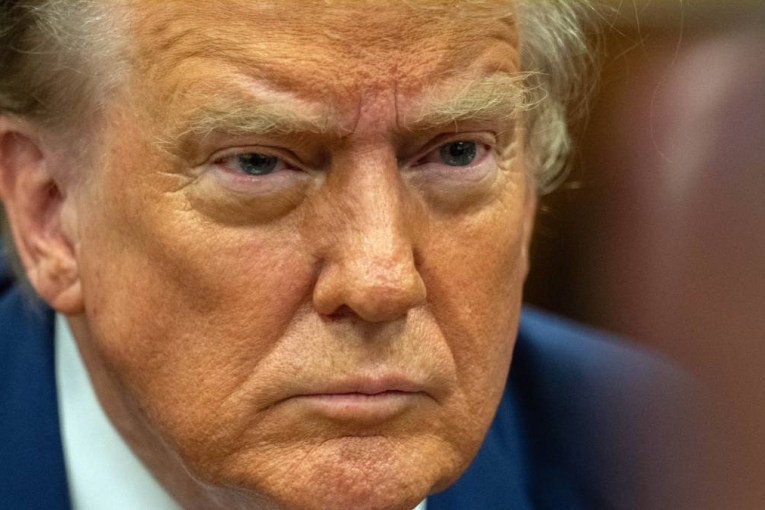Protesters win: Hong Kong extradition bill postponed ‘indefinitely’


The Chinese government has been accused of attempting to silence the Hong Kong protesters. Photo: Getty
Hong Kong leader Carrie Lam has bowed to massive public anger and delayed indefinitely a proposed law to allow extraditions to mainland China.
The extradition bill, which would cover the Asian finance hub’s seven million residents as well as foreign and Chinese nationals in the city, was seen by many as a threat to the rule of law inherited from the island’s British former masters.
“After repeated internal deliberations over the last two days, I now announce that the government has decided to suspend the legislative amendment exercise, restart our communication with all sectors of society, do more explanation work and listen to different views of society,” Lam told a news conference.
She said there was no deadline, effectively suspending the process indefinitely.
The backdown is a huge victory for the million people who took over the streets last Sunday to oppose the bill, plus the lesser crowds who turned out through seven days of unrest.
Protests were met with tear gas, bean bag rounds and rubber bullets from police, plunging the city into turmoil and piling heavy pressure on Lam.
At least 11 people were arrested in the protests, a further 81 injured and at least 22 police officers taken to hospital.
Cracks began to appear on Friday in the support base for the extradition bill with several pro-Beijing politicians and a senior advisor to Lam saying discussion of the bill should be postponed for the time being.
By Friday, a tense calm returned to Hong Kong after a Thursday night vigil where people sang hymns and held up signs criticising the police for their handling of the demonstrations.
More than 30,000 people signed a petition protesting the use of force by police during violent clashes with protesters in a second demonstration on June 12.
Meanwhile, a group of former senior government officials on Friday urged Ms Lam not to force a confrontation by pushing ahead with the unpopular measure, which would have allowed Hong Kong suspects to be tried in mainland China.
“It can be said the government perhaps should consider other options,” said Bernard Chan, a leading member of the Executive Council.
One of the legislature’s pro-Beijing members, Michael Tien, said on Facebook that the bill was unneeded.
“We’re the laughing stock of the world,” he said.
Many in Hong Kong fear the measures would have undermined the former British colony’s legal autonomy and subjected suspects to “mainland justice”, where acquittals are a rarity and accusations of torture and false confessions are commonplace.

Hundreds of mothers holding placards, some of which read “If we lose the young generation, what’s left of Hong Kong”, and lit smartphones protest against the amendments to the extradition law in Hong Kong on Friday. Photo: AAP
Calls for Carrie Lam to step down
Willy Lam, an expert on Chinese politics at the Chinese University of Hong Kong, had earlier predicted public pressure would prove too much – and also that Beijing would need a scapegoat if the extradition initiative was withdrawn.
“There’s a possibility Beijing might strike a compromise – and the blame will be put on Carrie Lam,” he said.

Protesters are seen marching in the streets in Hong Kong on Sunday. Photo: Getty
The week of tension and tear gas drew international criticism, especially from US lawmakers and human rights groups, prompting Beijing to respond with warnings against “interference” in its internal affairs.
China’s foreign ministry said Vice-Foreign Minister Le Yucheng summoned Robert Forden, the US Embassy’s deputy chief of mission, on Friday. Mr Le urged the US to treat Hong Kong “objectively and fairly,” the ministry said in a statement, adding that “China will respond further to the US’s actions”.

Stickers with messages supporting protesters are left on a wall near the Legislative Council in Hong Kong on Friday. Photo: AAP
The eruption of dissent in Hong Kong was evident and growing in step with the rallies and public anger.
Signs were posted Friday on the walls of a pedestrian bridge near the city’s government headquarters, including photocopies of the famed Associated Press “Tank Man” picture that became a symbol of resistance to China’s bloody suppression of student-led pro-democracy protests centred on Beijing’s Tiananmen Square in 1989.

Broken umbrellas left in the aftermath of Wednesday’s violent protest. Umbrellas became a symbol of protest in Hong Kong in 2014 after demonstrators used them to shield themselves from both police pepper spray and a hot sun. Five years later, umbrellas were out in force again. Photo: AAP
The debris-strewn area around the building which houses the Legislative Council was blocked off by police while sanitation workers gathered rubbish and police officers checked identity cards before letting people into the area.
– with AAP








